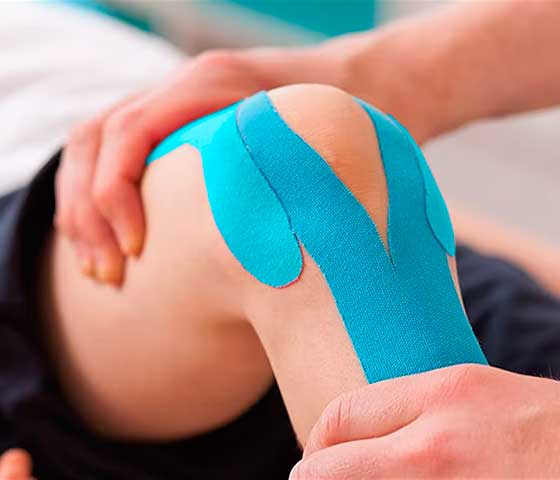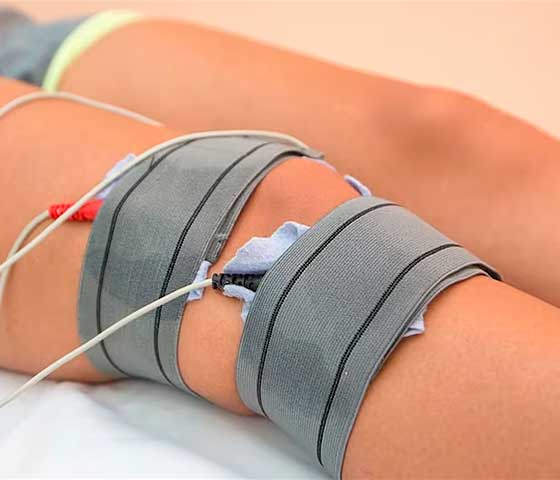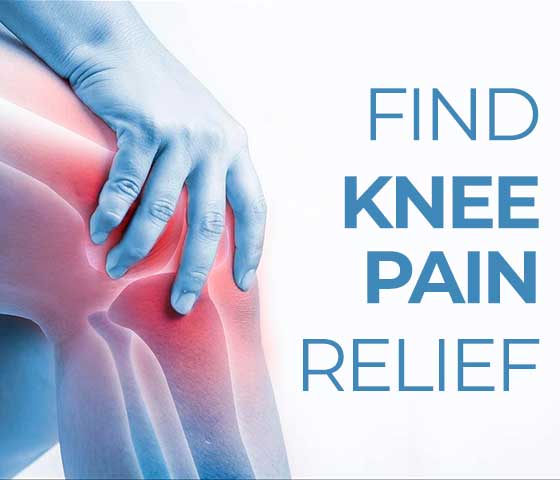Knee pain can arise from various causes, including injuries, overuse, medical conditions, or underlying structural issues. In addition to being uncomfortable, can greatly impair our daily activities. The good news is that you don’t have to go through this pain forever.

Fortunately, not all knee issues can result in a total loss of function and may require a simple solution to help remedy the issue and return you to function. Physiotherapy can be highly effective in relieving knee pain by addressing the underlying causes, improving flexibility, strengthening muscles, and enhancing joint function.
At Revolve Physiotherapy our specialists will carry out the most accurate diagnosis to find the real cause of your knee pain. Our registered physiotherapists may assess your knees for evidence of misalignment or structural damage, as well as evaluate your stance, posture, gait, and range of motion during your first appointment.
Here are several ways physiotherapy can help alleviate knee pain:
Assessment and Diagnosis: Our team will conduct a thorough assessment to determine the cause of your knee pain. This may involve analyzing your gait, range of motion, muscle strength, and any contributing factors such as posture or previous injuries.
Pain Management Techniques: Physiotherapy employ various pain-relieving techniques such as manual therapy, including massage and joint mobilization, to reduce pain and improve mobility in the knee joint.
Exercise Prescription: A tailored exercise program will be developed to strengthen the muscles around the knee, including the quadriceps, hamstrings, and calf muscles. Strengthening these muscles helps to provide better support to the knee joint, reducing strain and pain.
Biomechanical Correction: Abnormal movement patterns or biomechanical issues can place undue stress on the knee joint, leading to pain and injury. Physiotherapy address these issues through techniques such as gait analysis and corrective exercises to improve alignment and movement mechanics.
Modalities: We use modalities such as ultrasound, electrical stimulation, or hot/cold therapy to help reduce inflammation, alleviate pain, and promote healing in the knee joint.
Education and Self-Management Strategies: Our team will provide education on proper posture, body mechanics, and ergonomics to help prevent further knee injuries. They also teach self-management strategies such as home exercises, activity modification, and pain management techniques to empower patients to take control of their knee health.
Functional Rehabilitation: As the knee pain improves, physiotherapists focus on functional rehabilitation, incorporating activities and exercises that mimic real-life movements to improve strength, stability, and overall function of the knee joint.
Assessment & personalized treatment
It’s important to consult with a healthcare professional for an accurate diagnosis and appropriate treatment plan tailored to your specific condition and needs. They will conduct a physical examination, order imaging tests if necessary, and recommend the most suitable treatment.
Based on your assessment, a personalized treatment plan will be created to address your condition and may include manual therapy and exercises to help increase strength, mobility, or perhaps remove unnatural tension and strain on your knees. Educational information may also be provided to help prevent recurrence of the injury.

If you are physically active or practice a sport, you may need exercises to correct movement patterns that may be affecting your knees and to establish good technique during your sport or activity. Exercises to improve your flexibility and balance also are important.
There are a variety of brace devices to help protect and support the knee joint. For example, arch supports, sometimes with wedges on one side of the heel, can help shift pressure away from the side of the knee most affected by osteoarthritis.
Don’t wait any more, find knee pain relief! Call us now 905 864.8181 and talk to one of ours Specialist.
